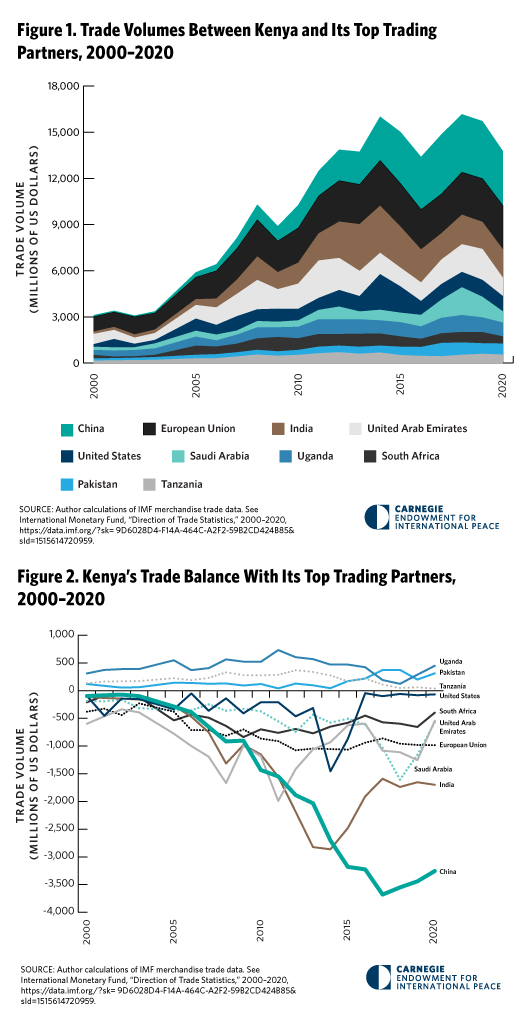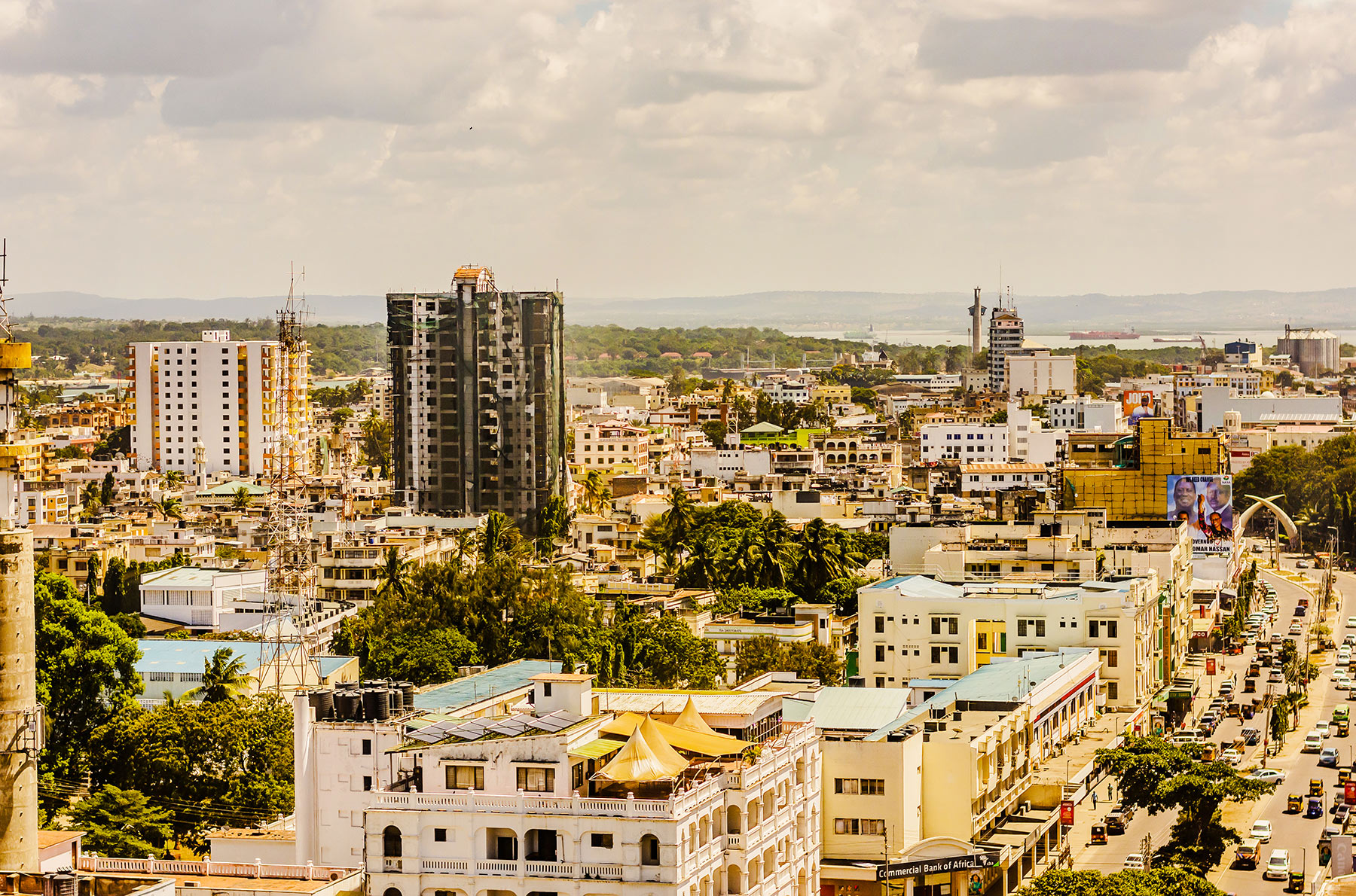SEPTEMBER 2022
Dear friends and colleagues,
On Monday, William Ruto was sworn in as the fifth president of the Republic of Kenya following his victory by a narrow margin in the August 9 election. Even after the Supreme Court’s dismissal of a legal challenge brought by Ruto’s opponent, Raila Odinga, the electoral process was largely peaceful. Indeed, in the months prior to the election, when the Carnegie Africa Program traveled to Nairobi, we were struck by the atmosphere of relative calm and careful optimism. Compared to previous contests, the 2022 election seemed to mark a shift in the tone of debate, as the two candidates highlighted differences around economic policy on issues like inflation and unemployment and sidestepped overt appeals to ethnicity.
Now with the elections concluded and the administration in place, a central priority of the new government will be to implement the “bottom-up economic model” outlined in Ruto’s Kenya Kwanza manifesto. Trade will be crucial to this agenda, as we indicate in the September 2022 Chart of the Month and accompanying article. More than 16 percent of Kenya’s merchandise trade is with China (the country’s top trading partner), followed by the EU ($2.9 billion), India ($1.8 billion), and the United Arab Emirates (UAE) ($1.2 billion). The United States (nearly $1.0 billion) is Kenya’s fifth-largest trade partner. Balancing these overlapping relationships–with the great powers, with neighbors in the East African Community, and its interest in advancing the African Continental Free Trade Area–will be critical.
Kenya’s changing relationship with key powers like the United States and China will be followed closely. During the campaign, Ruto pledged to deport undocumented Chinese workers and cited borrowing from China as a source of Kenya’s debt distress. But in a recent meeting with a high-level Beijing official, Ruto promised to expand relations on infrastructure, agriculture, and education.
Kenya-U.S. relations are also at a crossroads. Slowed negotiations between the U.S. and Kenya around a potential free trade agreement may accelerate, if Ruto’s meeting this week with United States Trade Representative Katherine Tai is any indication. The recent publication of the Biden administration’s U.S. Strategy Toward Sub-Saharan Africa will reshape strategic partnerships with African countries so long as the United States successfully centers economic diplomacy at the core of its engagement, I write in Foreign Affairs. My take on the implications of the new strategy can be found here.
To keep up with Carnegie Africa events and publications, sign up on our website or follow us on Twitter @AfricaCarnegie.
Sincerely,
Zainab Usman
Director, Carnegie Africa Program
CHART OF THE MONTH

September 2022 Chart of the Month
FEATURES
This special event featured Carnegie Africa Program director Zainab Usman and her latest book, Economic Diversification in Nigeria: The Politics of Building a Post-Oil Economy. Carnegie Africa
Nigeria’s major development challenge is not the ‘oil curse’, but of achieving economic diversification beyond its dependence on oil revenues, and politics plays an important role. Zainab Usman
The elections could usher in a more competitive era in Angolan politics. An opposition alliance, galvanized by economic adversity, presents a serious challenge to President Lourenço and the ruling MPLA party. Nicolas Lippolis
Though the adoption of information and communication technologies in Kenya’s electoral process has served to remedy legacy concerns, it has also raised new issues, such as privacy matters. Rose Mosero
U.S.-AFRICA RELATIONS
The international partners that help African countries overcome some of their seemingly intractable challenges and unlock their latent potential will reap significant economic and political gains. But the continent needs investment. Zainab Usman
The revamped U.S.-Africa partnership is driven by discernible global shifts. These changes in areas that matter to African countries will be the surest way to build the foundation for a twenty-first century partnership. Zainab Usman
DEVELOPMENTS ON OUR RADAR
- Perfect storm brewing for South Africa as load shedding intensifies. [Business Tech]
- Kenya gains fresh access to China avocado market. [Farm Kenya]
- Africa Climate Week 2022 Builds Important Regional Momentum for Climate Action ahead of COP27. [United Nations]
- Biden announces U.S.-Africa summit for mid-December. [Reuters]
- Kenya: Ruto sworn in as new president, Raila declines to attend the inauguration. [The Africa Report]
IN THE NEWS
- Carnegie Africa scholar Katie Auth explains to Quartz Africa how exogenous shocks are squeezing Africa’s power companies.
- Carnegie Africa scholar Gilles Yabi discusses political trends in West Africa with Radio France Internationale.
- Carnegie Africa director Zainab Usman was a guest on The China in Africa Podcast.
